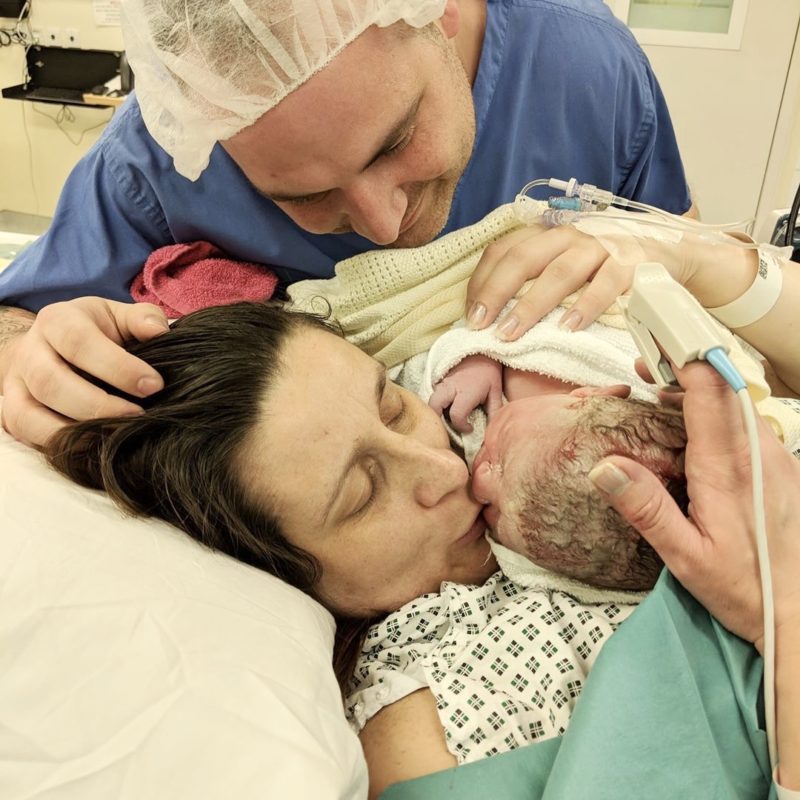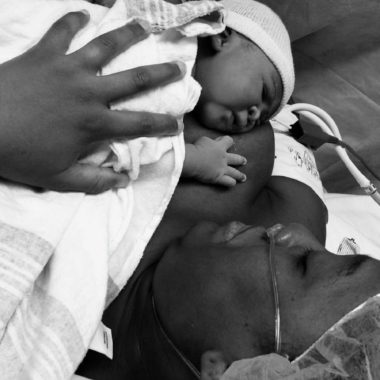The transformation that a woman’s body undergoes from the moment of conception till delivery can only be classified as remarkable.
This miracle of nature is such that these “epic” changes happen not only to a woman’s body but also (importantly, too) impacts her mental health.
For this reason, it is not strange to find that some women make efforts to avoid sexual intercourse post-delivery for as long as they can.
But then, on the other hand, other women are willing and open to intimacy soon enough – much to the delight of their partners. Lol.
What, then, is the marked difference between these two groups of women?
Psychologists believe that it is the mindset and a woman’s mental state, and rightly so. Research has shown that the mind is the seat of consciousness, self-awareness and understanding of the world around us. This makes it the most important sexual organ because that is where the groundwork is done to prepare the body for pleasurable sexual experiences – or otherwise. And this is why a woman who attaches feelings of dread to previous pregnancies may want to avoid the possibility of future conceptions by striking out any coital-related activities from her focus.
Knowing this – that the mind is central to have wholesome sexual experiences – what about the body? After all, the mind may be geared alright, but is the body in tiptop shape?

Birth Method
It is not surprising to find that there is a general belief that a woman’s mode of delivery can either improve or diminish her sexual appetite. It is only normal to assume that a woman who has undergone a CS will need to take more time off than someone else who had a vaginal birth, right? Well, sorry to burst your bubble. Wrong.
If you find yourself asking “What has my birth-method got to do with it?”, we’re here to help answer that question.
When it comes to biological changes in the human body, chuck every form of “absolute” facts in the trash can.
Don’t believe the myths about Caesarean sections being a hindrance for parous women to desire sex once again. If anything, research shows otherwise: that some CS moms may begin as early as 4 weeks after delivery as against the widely prescribed 6-week period. According to this study published by the Oman Medical Journal, a woman’s mode of delivery does not affect her sexual willingness.

Fit body
“How fit and ready is my body?”
While there’s no required waiting period before you can have sex again, many health care providers recommend waiting to have sex until four to six weeks after delivery, regardless of the delivery method.
Abstinence is advised at the early point of postpartum to mitigate the chances of infection from penetrative sex. As an aside, isn’t life a humorous cycle though? Lol.
Medical professionals believe that the risk of having a complication after delivery is highest during the first two weeks after delivery.
But Nature itself tells a different story. Sexual desire starts to rebuild between new parents around the fourth week which is commensurate with the kind of longing that comes even before pregnancy or during pregnancy which is why pregnant sex is advised. However, with pregnant sex, couples are free as long as there is no threat to mother and child. Otherwise, in cases of high-risk pregnancy, sex is prohibited.

But seriously, why do doctors recommend a six-week waiting period?
- Lochia (discharge of remnant blood and uterine tissue) sheds from the body and significantly reduces within this timeframe.
- The vagina, uterus, and cervix also require time to heal or self-repair post-birth. The immediate period after birth is most important for this to happen, although the time differs from woman to woman.
- Increased sensitivity and unprecedented thinning of the vaginal tissue from birth should begin to subside within this period.
- A contraction of the pelvic floor which has been widened by pregnancy and hormonal changes will begin to “normalize” over the first few months after birth.
- A woman who’s had an episiotomy or other laceration will need time to heal. This, however, depends on how extensive the “cut” is and the location where it was done.
Apart from these bodily changes, there may also be some behavioural changes caused by hormonal imbalance. For instance, low levels of estrogen – which affect the elasticity of vaginal tissues – remain so during breastfeeding and can also cause the body to mimic menopause, according to Dr Rebecca Booth, a gynecologist. Even the six-week window period is literally when your body braces for the impact that comes with nursing, too.
Besides this, non-physical factors like spousal support and the sleeping cycle of both you and your baby can also lower libido.
After the six-week recommended period, a postpartum checkup should be carried out by your doctor to ascertain the present state of your body. This is where you’re given the liberty to hit the sheets once again.
Now that you know it’s safe to get busy, consider these few tips:
- Be spontaneous. You don’t have to draw up a schedule.
- Communicate with your partner. Awareness of any place where you’re still feeling any discomfort will let your partner be tender towards you.
- Quickies are not so bad. You don’t have to make it an exaggerated affair, a five or ten-minute performance is just fine.
- Be open to alternatives. Sometimes, exciting yourselves may not be all about penetration.
- Afternoons can be a good option. No rule restricts you to a certain time of day.
Remember that normal is boring and Nature works a different wonder in each woman. Enjoy!
- How Setting Postpartum Boundaries made me lose my brother - February 6, 2025
- How To Revive Your Sex Life After Baby - October 17, 2023
- The Sona App Aims To Make Your Child “Sleep Like A Baby” And We Tested It - May 14, 2023








